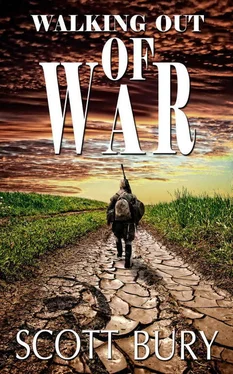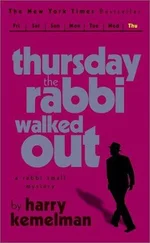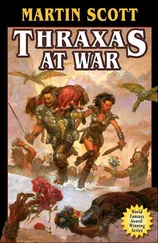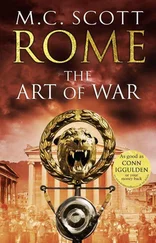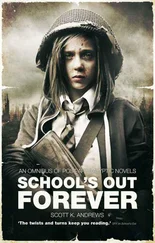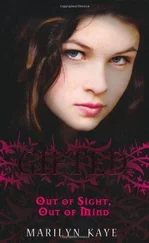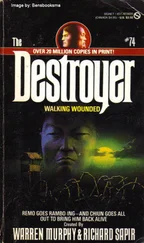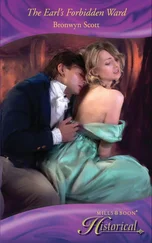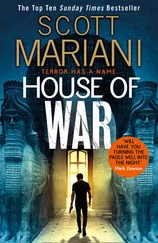A young man in the congregation reported how Soviet Army soldiers carrying rifles came into a D.P. camp and ordered Ukrainian women and children onto trucks. “They were all crying,” he said. He hung his head and Maurice could see a tear slip down his cheek. “I hid. I had to, or they would have taken me. I’ve been hiding ever since.”
The two men in uniform at the front of the meeting described how the CURB was distributing food, clothing and other supplies, despite the official protests of the U.N. The small man in the dark suit described the vague efforts to intercede with official institutions to appeal for the rights of people who did not want to go back to the USSR, to stay in Austria and Germany, or emigrate to the United States or Canada.
As he said “America,” the young man who had watched his friends taken away looked up, his eyes wide and shining. “How can I go to America?” he asked.
“Do you have any relatives there?” The American Air Force officer asked.
The young man shook his head, his lips quivering but hope still lurking in his eyes.
“Immigration is not easy,” said the officer. “The U.S. is complying with the U.N. declaration, and the first priority is returning all displaced persons to their countries of origin.” A groan rose from the congregation.
“That is not to say that it is impossible,” said the man in the suit, holding his hands up. He stood. “There are steps and options for emigration in some circumstances,” he said loudly, over the disappointed chatter of the crowd. “You can work with our officials and volunteers, but please remember, it can take time to get the authorization to travel out of Austria.”
“And in the meanwhile, the communists take more of us back to Russia every day,” said the young man who had spoken earlier. He rose to his feet and shouted: “What are you going to do about that? You soldiers, you Canadians and Americans, you’re helping the Russians! What are you going to do?”
People near him hushed him, pulling on his sleeve to get him to sit down, but he shook his arm free. “You talk about administrative processes and circumstance, but our only circumstance is that we’re freezing and starving until the communists find us and take us back to the Soviet Union.” He pushed his way past the others on the pew beside him and strode out of the church. The closing door echoed.
The rest of the people gathered in the pews shook their heads and commented about the young man’s hot temper. The three men at the front took command of the meeting again, trying to reassure the people that they were doing their best to look out for the Ukrainians in Vienna.
Maurice did not listen. He wiped his nose yet again, waiting for the meeting to conclude. When it finally did, he made his way to the front where the man in the suit was handing out leaflets to people as they left.
“You mentioned circumstances that could help with obtaining travel authorization to Canada,” he said. “Would being a Canadian citizen be one of those circumstances?”
The man in the suit was very short and quite thin. He wore round, wire-rimmed glasses on a thin, pinched-looking nose, and his dark hair was carefully trimmed and combed and oiled. He looked up at Maurice, frowning. “How did you come to have Canadian citizenship?” he asked as he continued to pass out pamphlets.
“I was born in Canada.”
“Then you should have no trouble. But how is it you are here in Vienna?”
Maurice could not just blurt out that he had come to Vienna from the USSR by way of Lithuania, Prussia and Berlin as a soldier in the Red Army. He had no way of knowing who might be a communist informer or spy in the church. Maybe even this dapper man made enough money as a paid informer for the Soviets that he could afford such an expensive, tailored suit in the midst of the postwar shortages. Maurice was about to begin the complex story he had devised, but as he opened his mouth, another sneeze caught him. This time, he managed to bring his handkerchief into place in time.
That was followed by a coughing fit. The small woman who had first blessed Maurice after his previous sneeze came up, concern on her face. She took Maurice by the elbow and led him to a pew at the side of the church. “Sit down. This is the warmest place in this church.”
“Thank you,” Maurice managed to croak between coughs.
The small woman put the back of her hand against Maurice’s forehead, then his cheek. “At least you don’t have a fever. Not yet, at any rate,” she said. Maurice sneezed again and closed his eyes as the woman touched his face. It was the first tender touch he had felt in over a year.
Maurice sneezed again, but at least it was into his handkerchief this time. “That’s it. You come home with us tonight.”
“But I have a home,” Maurice said.
“I have a cure for that cold. It works every time. Doesn’t it, Andrei?” she said, turning to the man from the front of the room. He nodded.
“Andrei Hretsyk,” he said, holding out his hand. “This is my wife, Yulia.”
Maurice shook Hretsyk’s hand and told them his name. He managed to hold in a sneeze.
“It seems you need more than one kind of help,” Hretsyk said, laughing.
Outside the church, the streets were still almost as dark in the winter evening of 1947 as they had been during the blackouts. Few of Vienna’s streetlights were working yet.
The Hretsyks led Maurice to the American zone, breezing past the American Army checkpoint with a smile and a wave at the GIs.
Maurice was almost shocked to see that their apartment building had suffered no visible damage. It felt like years since he had seen a building without scars of bombs or bullets.
The Hretsyks’ apartment was larger than any he had seen in Poland or Ukraine. Late afternoon sunlight filtered through curtains over tall windows, bathing the dark wooden furniture in warm light.
Yulia Hretsyk led Maurice into a narrow kitchen, where the wooden cupboards had been painted bright white. She sat him in front of a similarly painted wooden table. As she waited for a kettle to boil on the gas stove, Andrei took a plain bottle from one of the cupboards and poured a shot of clear liquid into a small glass. Then he shook pepper into the glass and put it in front of Maurice. “Drink this.”
Maurice’s nose was so congested he could not detect an odour from the glass, not even of pepper. “What is it?” he asked.
“My own cure for the common cold.” Andrei smiled, his eyes twinkling. “Gin and pepper.”
Maurice picked up the glass, but hesitated before drinking. “Does it work?”
Andrei’s smile got a little wider. “Who knows? But after a few treatments, you won’t care.” He laughed loudly, slapping his knee.
“Oh, Andrei,” Yulia clucked as the kettle began to sing.
Maurice threw the concoction into his mouth and swallowed it fast. He could taste pepper and the perfume flavour of gin, but he barely registered the burning of the alcohol in his throat.
Andrei was about to pour another shot, but Yulia took the bottle from his hand. “That’s enough for now. There is no reason to get a young man drunk quickly.” She put a large bowl of steaming water on the table in front of Maurice. “Lean over and breathe in the steam,” she ordered. As Maurice complied, she covered his head and the bowl with a towel. “Stay under there and just breathe until the water stops steaming.”
Maurice closed his eyes. The steam around his face soothed him. Gradually, he could feel air penetrate though his nose again. He realized his head had been hurting for hours as the pain lessened. The alcohol had loosened the phlegm in his throat, too. Even his chest felt better, more relaxed, and the muscles in his neck and shoulders relaxed.
Читать дальше
